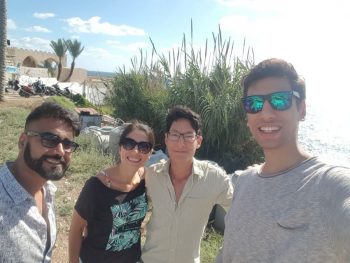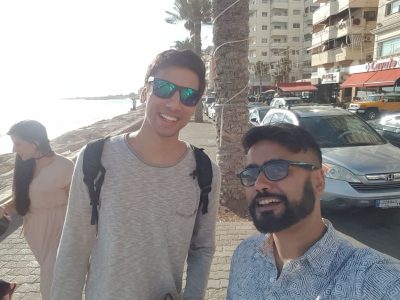Re-focusing SEZs for Lebanon
By: Suhail Shersad
On Friday, August 23rd 2013, twin explosions killed 27 people and injured another 600 at a busy mosque in Tripoli. Gripped by sectarian clashes, citizens of Lebanon’s second largest city had faced difficult choices. When I reached Lebanon in the summer of 2017, the violence had subsided—but in the absence of reliable economic opportunities, many of the difficult choices remained. But Tripoli is a historic and proud city, with resilience that has been tested and honed over centuries. The Government of Lebanon’s Tripoli Special Economic Zone initiative is an ambitious project to generate economic development in the region, and in many ways, is a symbol of this resilience.
Along with the opportunity to experience Lebanon’s intricate context, I was attracted specifically by the Tripoli Special Economic Zone Authority (TSEZ)’s emphasis on uplifting economic and social welfare for all citizens. Globally, Special Economic Zones (SEZs) have been used in contexts ranging from India to Jordan, with the aim of attracting investment and improving economic outcomes. However, the successes have been varied. Critics of the SEZ model have emphasized that firms which incorporate within the geographic boundaries of the Zone do not develop proximal regions, thus creating spatial inequalities. In the post-conflict context of Tripoli, the effects of such fissures would be dangerous. Recognizing this, the TSEZ makes inclusive growth a priority, and along this vein, my role was to advise on metrics for evaluating macroeconomic welfare and productivity.
 One focus areas of the TSEZ is creating a Knowledge and Innovation Center, to promote the technology and services sectors of the economy in Northern Lebanon. While measuring the productivity gains from technology can be complicated given spillovers and network effects these sectors create, some frameworks exist which can be illustrative.
One focus areas of the TSEZ is creating a Knowledge and Innovation Center, to promote the technology and services sectors of the economy in Northern Lebanon. While measuring the productivity gains from technology can be complicated given spillovers and network effects these sectors create, some frameworks exist which can be illustrative.
The intuition is that only a part of economic growth is generated by increments in factor inputs. The remaining “residual” proportion of growth will stem from increases in productivity, and is called Total Factor Productivity (TFP) in academic literature. TFP is influenced by the synergies between different factors, economic and political stability, strength of governing institutions, and other contextual variables that impact productivity. As firms begin setting up in the Zone, capturing TFP will provide a broad-based indicator of productivity in the region, though given that this is a macroeconomic measure, effects from other projects in Tripoli would also be recorded in the TFP.
For measuring welfare, charting household income deciles over a period of time can provide illustrative data. This will effectively measure the incidence of income growth over different levels of society, and from this it is possible to observe changes to levels of poverty, as well as make comparisons regarding changes to inequality. This is especially important in light of academic literature which shows that as the technology sector grows in an economy, the labor market becomes polarized, i.e., middle-income jobs become replaced with some high-income and many low-income jobs. By tracking income growth at deciles, such changes can be discovered and corrected through informed policy making.
 Other ways to achieve inclusive growth in the technology domain depend upon the components of the technology sector ecosystem. Through partnerships with universities, entrepreneurship accelerators, incubators, and other institutions, the TSEZ can ensure that opportunities can be capitalized upon by citizens at all levels of society. By leveraging Lebanon’s significant and skilled expatriate population, once mature, these initiatives also have potential international scalability.
Other ways to achieve inclusive growth in the technology domain depend upon the components of the technology sector ecosystem. Through partnerships with universities, entrepreneurship accelerators, incubators, and other institutions, the TSEZ can ensure that opportunities can be capitalized upon by citizens at all levels of society. By leveraging Lebanon’s significant and skilled expatriate population, once mature, these initiatives also have potential international scalability.
The task at hand for the Tripoli Special Economic Zone is not straightforward or simple—but it is critical. And while multiple tools, thoughtful goals, a reliance on robust data, and constructive criticism are all required to achieve this task, ample optimism is also essential. I often recall what a cab driver told me shortly after I arrived in Beirut, as he swerved through traffic, drank tea and smoked a cigarillo all at once: “Having a problem and being hopeless are two different things, habibi!”


What is the time limit to implement the scheme?
Excellent proposals
P.K.Abu Baker, Calicut,India